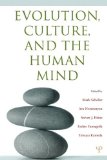‘Wealth of Networks’ free ebook & wiki
August 30, 2009
The Wealth of Networks by Yochai Benkler (Yale University Press, 2006) is one of the books cited in Clay Shirky’s Here Comes Everybody (that I made a “webibliography” for).
Through Creative Commons I found the wiki for Wealth of Networks, which offers the full text of the book in pdf, html and other formats.
Here is the product description for this title from Yale University Press:
With the radical changes in information production that the Internet has introduced, we stand at an important moment of transition, says Yochai Benkler in this thought-provoking book. The phenomenon he describes as social production is reshaping markets, while at the same time offering new opportunities to enhance individual freedom, cultural diversity, political discourse, and justice. But these results are by no means inevitable: a systematic campaign to protect the entrenched industrial information economy of the last century threatens the promise of today’s emerging networked information environment.
In this comprehensive social theory of the Internet and the networked information economy, Benkler describes how patterns of information, knowledge, and cultural production are changing—and shows that the way information and knowledge are made available can either limit or enlarge the ways people can create and express themselves. He describes the range of legal and policy choices that confront us and maintains that there is much to be gained—or lost—by the decisions we make today.
See also: List of books available under a Creative Commons license






